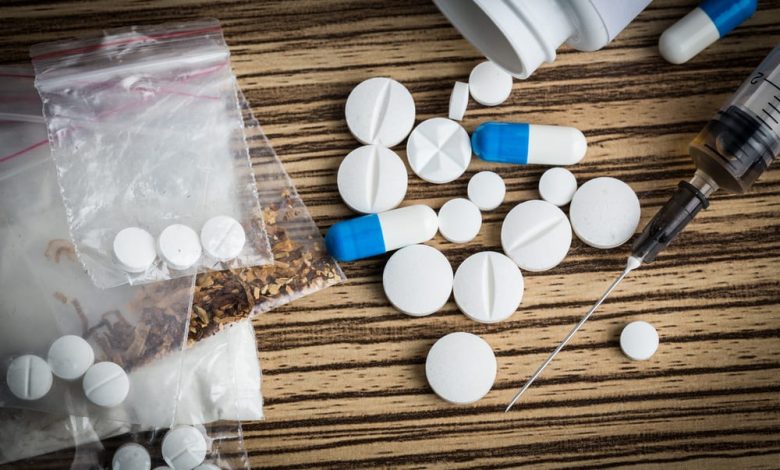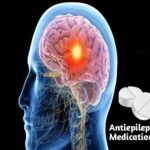List of Medications and Illegal Drugs That Cause Seizures?

A seizure is a sudden, uncontrolled burst of electrical activity in the brain. It can cause changes in behavior, movements, feelings, and levels of consciousness. Having two or more seizures at least 24 hours apart that don’t have a known cause is considered to be epilepsy.
There are many types of seizures, and they have a range of symptoms and severity. Seizure types vary by where they begin in the brain and how far they spread. Most seizures last from 30 seconds to two minutes. A seizure that lasts longer than five minutes is a medical emergency.
What are the types of seizures?
The three major types are focal onset seizures, generalized onset seizures, and unknown onset seizures.
Focal onset seizures
Focal onset seizures occur in only one area of the brain. People may also refer to these as partial seizures. Focal onset seizures can start in small areas of the brain, such as a single lobe, but can affect large areas. Medical professionals typically split focal onset seizures into two types: focal aware seizures and focal awareness-impaired seizures.
- Focal aware seizure: During a focal aware seizure, you’ll remain fully conscious and be aware that something is happening, even if you do not recognize it as a seizure. The symptoms of a focal aware seizure will depend on which part of the brain the seizure starts. Focal-aware seizures may be singular events but can also develop into other types of seizures. For this reason, people often refer to them as warnings or auras.
- Focal impaired-awareness seizure: This type of seizure affects your consciousness. During a focal impaired-awareness seizure, you may not be able to move, talk, or hear as you did before. You may also not be able to remember the event. Focal impaired-awareness seizures can last for up to 2 minutes. This type of seizure typically affects a larger portion of the brain than focal aware seizures.
Generalized onset seizures
These seizures start in both sides of the brain simultaneously. Among the more common types of generalized onset seizures are:
- Tonic. Tonic seizures will result in your muscles stiffening up.
- Clonic. The convulsions in clonic seizures may cause abnormal, jerky movements of your limbs. You will likely lose consciousness during these seizures that can last for a few minutes.
- Tonic-clonic. Tonic-clonic seizures include a combination of both tonic and clonic symptoms.
- Myoclonic. During a myoclonic seizure, you may experience sudden muscle spasms. These are typically too short-lived to affect consciousness and pass quickly. Myoclonic seizures may be of generalized onset as well as the focal onset.
- Absence. People may also refer to these as petit mal seizures. Absence seizures last for only a few seconds. They can cause you to blink repeatedly or stare into space. Other people may mistakenly think you’re daydreaming.
- Atonic. During atonic seizures, your muscles suddenly go limp. Your head may nod, or your entire body could fall to the ground. Atonic seizures are brief, lasting about 15 seconds. People may refer to these seizures as drop attacks.
Unknown onset seizures
Sometimes no one witnesses the beginning of a seizure. For example, someone may wake up in the middle of the night and observe their partner having a seizure. This often means there’s insufficient evidence for medical professionals to diagnose the root cause of a seizure. In these instances, they will define the seizure as an unknown onset seizure.
What is drug-induced Seizures?
Drug-induced seizures is a sudden or uncontrolled electrical activity in the brain triggered by a medication or illicit drug. Drugs can cause seizures by a direct epileptogenic effect on administration or after withdrawal, by metabolic effects such as hypoglycemia that cause secondary seizures, and by interacting with antiepileptic drugs to reduce their efficacy.
Drug-induced seizures are different from epilepsy — without the drug, the person would not have otherwise had the seizure. Drugs can also make someone who is already prone to seizures (for example, someone with epilepsy) more likely to have one
There are many medications that have been reported to cause seizures, both in individuals with and without a history of seizures. Here are some examples:
1. Antidepressants such as bupropion, fluoxetine, and venlafaxine
2. Antipsychotics such as clozapine and risperidone
3. Antibiotics such as imipenem, cefepime, and penicillin
4. Antihistamines such as diphenhydramine and promethazine
5. Antimicrobial agents such as acyclovir and ganciclovir
6. Antimalarial drugs such as mefloquine and quinine
7. Antineoplastic agents such as tamoxifen and vinblastine
8. Chemotherapy drugs such as cisplatin and cyclophosphamide
9. CNS stimulants such as methylphenidate and dextroamphetamine
10. Lithium
11. Tramadol and other opioids
12. Local anesthetics such as lidocaine and bupivacaine
Illicit drugs known to cause seizures include Cocaine, Amphetamines, Methamphetamine, MDMA, Opioids, Opiates, Marijuana, CBD, Phencyclidine (Pcp), Inhalants, Psychostimulants, and Heroin.
It’s important to note that the risk of seizures varies depending on the individual, the dose of the drug, and other factors. If you are taking any of these medications and are concerned about the risk of seizures, it is important to talk to your healthcare provider.
What to do if a drug is causing seizures?
If you suspect that your medication or drug is causing seizures, contact your doctor about your concerns. Your doctor may be able to adjust your dosage, offer advice on how to cope with side effects, provide alternative treatments, or give you additional medications or supplements to help with the seizures. Do not stop taking a prescribed medication without consulting your doctor first.
If you are managing epilepsy make sure you follow your doctor’s instructions and let them know if you have any side effects from the medication. Do not stop taking the medication suddenly, as this may cause seizures. If one antiepileptic drug doesn’t work for you, there are others you can try until you find the best one for you.
If you have been using or abusing illicit drugs and you start experiencing seizures, seek professional help immediately in order to minimize withdrawal symptoms and prevent a return to substance abuse.





